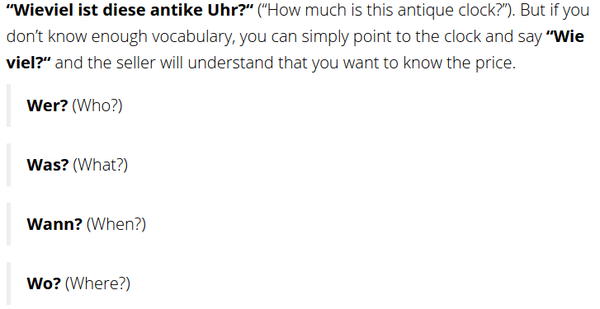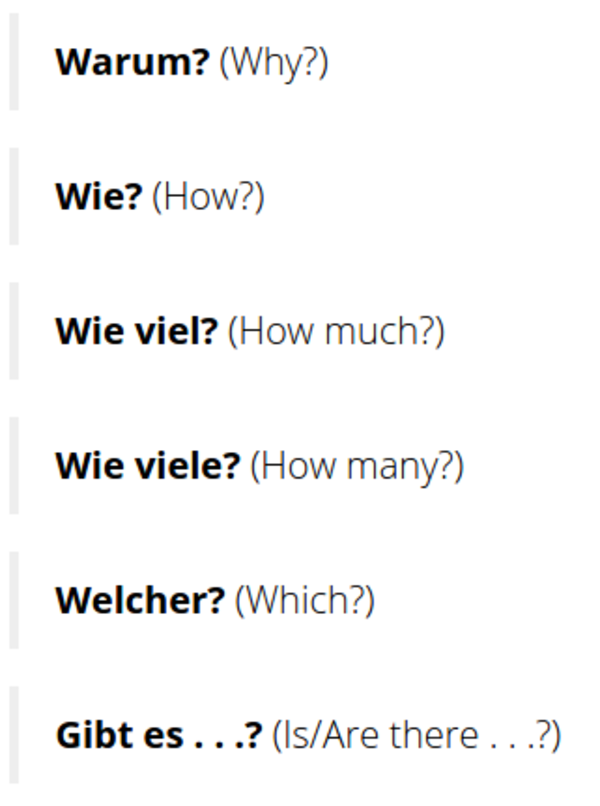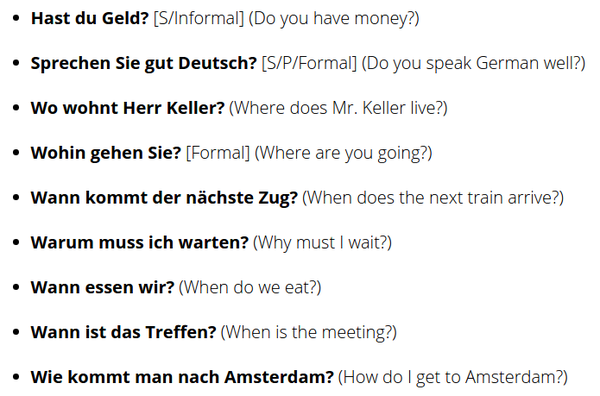
- German interrogative words are the same with English'.

- Examples.
- "Wieviel ist diese antike Uhr?" means "How much is this antique clock?".
- However, "Wieviel?" also fine.
- Vocabularies.
- "Wann" means "when".
- "Was" means "what".
- "Wer" means "who".
- "Wo" means "where".

- "Wo" is used to asking a location.
- Whereas "wohin" is used to asking where someone is going.
- For examples.
- "Wo ist das restaurant?" means "Where is the restaurant?".
- "Wohin geht Herr Benz?" means "Where is Mr. Benz going?".

- Examples.
- "Gibt es" means "is/are there".
- "Warum" means "why".
- "Welcher" means "which".
- "Wie viel" means "how much".
- "Wie viele" means "how many".
- "Wie" means "how".

- Examples.
- "Hast du geld?" is an informal sentence that means "Do you have money?".
- "Sprechen Sie gut Deutsch?" is a formal sentence that means "Do you speak German well?".
- "Wo wohnt Herr Keller?" means " Where does Mr. Keller live?".
- "Wohin gehen Sie?" is a formal sentence means "Where are you going?".
- "Wann kommt der nachste Zug?" means "When does the next train arrive?".
- "Warum muss ich warten?" means "Why I must wait?".
- "Wann essen wir?" means "When do we eat?".
- "Wann ist das Treffen?" means "When is the meeting?".
- "Wie kommt man nach Amsterdam?" means "How do I get to Amsterdam?".

- There is no question that begin with "tun".
- "Tun" means "do/does/did".









